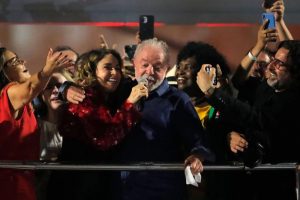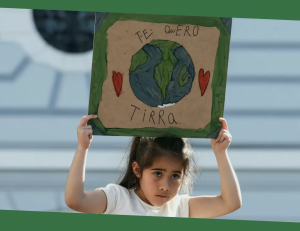Politics of co-creation research seminar (PYAM-9142, 5 study credits)
This is a research seminar under the Doctoral programme in political, societal and regional (PYAM) at the University of Helsinki. The seminar is open to researchers, PhD and master’s students as well as other experts interested in the related issues to co-creation and its introduction as a new type of paradigm in knowledge production, politics and innovation.
Contact: Bokyong (Bo) Shin – bokyong.shin(at)helsinki.fi
Autumn 2021 theme: Governance, co-creation and collaboration
Since the 2000s, we have witnessed the upsurge of online collaboration as digital technologies develop. People collaborate online for collective knowledge (e.g., Wikipedia), fund-raising (e.g., Kickstarter), sharing economy (e.g., Uber and Airbnb), participatory budgeting (e.g., OmaStadi), open hearing (e.g., Tell your stock), information sharing/discussion (e.g., Twitter and Reddit), and so on. While digital platforms open new spaces for collaboration between people from different regions, the dark side has emerged in fake news, right-wing populism, cyberbullying, and digital exclusion that polarises our community. The new logics of collaborating in the digital era calls for responses and solutions from academic research in studying these new hybrid environments.
Against this challenge, the Politics of Co-creation seminar invites students and scholars to share their ideas, works, and use-cases of collaboration in the digital era. The seminar will focus on diverse methods and frameworks of online and (or) offline collaboration in the real world. The form of the presentation is free, but we encourage presenters to share the following points:
- Definition and operationalisation of collaboration
- Problem orientation and research questions
- Analytical framework
- Data collection and methods
- Summary of preliminary or expected study results
Seminar format
The participants will present their works using PowerPoint presentation (30-45 minutes). PhD students who participate in the course will take a discussant role after the presentation (10 minutes). Discussions are then open to all participants.
Slots for the Autumn 2021 seminar
_
10.9. 13.15–14.45
Doctoral student Natalia Villaman
Facilitation as a means for making politics: Pathways towards a reconfiguration of practice
Natalia belongs to the Doctoral Programme in Social Sciences and focuses on issues of power exertion linked to facilitation and political participation. In this talk, she will be introducing her PhD topic, in which she dives into facilitation and its potential within public governance and the creation of political opportunities.
In her MA thesis work (linked below), Natalia found an interest towards the uses and misuses of facilitation, and the underlying notions of power and politics linked to it. Deriving from configurative disciplines such as design and management, facilitation holds the potential to be both a hegemonic and counter-hegemonic practice, depending on its deployment in participatory instances.
Moving in a multidisciplinary continent between design, mediation, and social sciences, she problematizes facilitation’s claim to be neutral, leading to naive or manipulative misuses of practice (Villaman, 2020), depoliticizing facilitation by minimizing it to a mere series of methods and tools. Hypothesizing that facilitation beholds the potential to be a key component in public governance by mediating clashes of ambition and influence in the making of politics, Natalia will reconceptualize facilitation as a politicized practice, able to take active part in mediations of struggles for power, and focusing on the creation of political opportunities.
Reference: Villaman, Natalia (2020) Fostering resistance: Acknowledging notions of power exertion and politics in design facilitation. Master Thesis. Aalto University.
Discussants:
Lari Karreinen, solution-focused facilitator, Part Ltd
Susanna Vase, PhD candidate, University of Helsinki
Zoom link: https://helsinki.zoom.us/j/69254518332
Presentation file: Facilitation as a means for making politics
_
1.10. 13.15–14.45
Doctoral student Bokyong Shin
Mock doctoral thesis defence: ”Social network analysis for communicative planning research”
Bokyong practices for his upcoming public defence (1 November 2021), with the help of three opponents and the audience. In the thesis, Bokyong examined the applicability of social network analysis in the planning literature, highlighting its contribution in identifying a theoretical bridge (social capital and deliberation) and proposing new network measures and models. In the mock defence, Bokyong exercises a 20-minute Lectio, then answers questions from three opponents. After that, Bokyong also answers questions from the audience.
Opponents:
Mikko Rask, Adjunct Professor, University of Helsinki
Arho Toikka, University lecturer, University of Helsinki
Pekka Tuominen, Postdoctoral researcher, University of Helsinki
Zoom link: https://helsinki.zoom.us/j/67615939040
Manuscript: It will be published later.
_
29.10. 13.15–14.45
Associate professor Hidenori Nakamura, Toyama Prefectural University
”Citizen Dialogue as Collaborative Environmental Governance: An Exploratory Case Study in Post- Fukushima Japan”
I report on an exploratory case study to help facilitate a culture of dialogue in Japan, utilizing part of the method of, and following the philosophy of, Open Dialogue, developed by mental health professionals and researchers in Finland. There is an emphasis on proposing methods for polyphonic dialogue among citizens, and between citizens and experts, to effectively manage the environment. I argue that a culture of dialogue is essential to pluralistic participatory environmental governance. A random sampling-based citizen dialogue—involving experts and citizens—regarding radioactive waste disposal was held in Japanese cities. Three proposed methods —-politeness-based facilitation dialogue, evidence-based and position-explicit presentations by experts with differing views and experts reflecting in tandem with citizens engaged in dialogue—- might lead to enhanced positive attitudes toward dialogue with others holding different views, as well as better internal self-deliberation. Attitudes for dialogue were measured empirically. The current research suggests that explicit treatment of pluralistic positions and views among citizens and experts would be a key factor for quality social learning and resilience for uncertainty. The hypothetical findings imply the applicability and significance of Open Dialogue in the public policy process.
I will also explain the research ideas conducted in Finland as an AF-JSPS postdoctoral fellow at the University of Helsinki.
Zoom link: https://helsinki.zoom.us/j/62036383895
_
5.11. 13.15–14.45
Doctoral student Susanna Vase
From science policy ideas to infrastructures: Understanding the construction of research funding schemes
Susanna is a PhD candidate studying science policy making and its effects on knowledge production practices. In this talk, she will discuss findings of a case study on the emergence of a Strategic Research funding instrument that was established at the Academy of Finland in 2015 as part of the reform of state research institutes. As science policy is shaped by the policy instruments used, it becomes vital to understand the process of their construction. Strategic research funding schemes are centered around notions of relevance, challenge-orientation, and transdisciplinary collaboration. The presentation will focus on the instrument implementation phase after the decision on founding the instrument was made. Susanna examined how policy objectives were translated into governance by interviewing the policy makers closely involved in developing the instrument. She identified and analyzed three dimensions that importantly shaped how the funding scheme was constructed: anticipatory tailoring, templates and sense-making. She discusses how they structured inclusion and exclusion in terms of council member and project selection, research theme formation, assessment, and formal representations of knowledge production. The results indicate how the translation of policy ideas to infrastructures is historically contingent, does not always respond to intuitive conceptions of what is sought after, and can generate paradoxical outcomes to governance practices, such as the disqualification of experts in evaluation. The findings increase understanding of the work that the designing of policy instruments entails, and the factors that make a difference in the outcome of their construction processes.
Zoom link: https://helsinki.zoom.us/j/68611777964
_
26.11. 13.15–14.45
Doctoral student Veronica Ahonen
”Towards zero carbon – governing emission offsetting in Finnish universities”
Veronica Ahonen is a PhD student in the Doctoral Program for Interdisciplinary Environmental Sciences, and works at the Department of Geosciences and Geography, where the focus of her work is on reducing emissions from work-based mobility. Her first article, ”The Sustainability of Academic Air Mobility in Finnish Universities” was published in Sustainability in March 2021, and focused on the carbon reduction strategies and mobility patterns of Finnish higher institutions. This talk revolves around her second, work in progress article, which aims to compare the carbon offsetting strategies and their alternatives in the universities of Finland, as well as individual travel-related attitudes and behaviors of Finnish academics, using a case study from the University of Helsinki. The results show that currently, higher education institutions of Finland do not have a single consensus on carbon reduction strategies, and emission offsetting is still practiced in only a handful of institutions. A majority of surveyed academics also had limited knowledge of the emission offsetting and carbon neutrality strategies of their university, although they were cautiously optimistic towards the topic, and showed willingness to reduce travel. COVID-19 has affected the travel-related attitudes of many academics, suggesting that the pandemic may have had acted as an important turning point in the context of academic travel.
Zoom link: https://helsinki.zoom.us/j/61510432509
_
17.12. 13.15–14.45
Anna Zhelnina (Urbaria) & Pekka Tuominen (COLDIGIT)
”Citizen participation in Helsinki, New York and St. Petersburg: Top-down and bottom-up initiatives”
Participatory budgeting (PB) has increased its popularity globally as a novel approach to redistribute resources especially in urban contexts. However, very different senses of citizen participation are gathered under this umbrella term with significant consequences. The presentation provides a comparative approach to the foundations, central values and sociocultural dynamics of PB processes in New York, Helsinki and St.Petersburg.
Zhelnina’s long-term qualitative study of PB in New York concentrates on how the activist-initiated process has developed through the interaction with the municipal decision-makers and examines in detail the different trade-offs the participants have encountered. In Helsinki, Tuominen’s focus is on how various co-creation practices have emphasised deliberative and competitive dimensions at different stages of the process. PB in St. Petersburg offers yet another historically grounded example with different sociocultural dynamics. These three examples allow us to analyse the dynamics of state-, grassroots-, and expert-driven PB processes.
The study is based on ethnographic data on how the participants have experienced their sense of participation through their interactions with decision-makers, civil servants and other urban activists. Analytically, it provides a comparative framework for understanding the context-specific character of PB as a flexible form of citizen participation.
Discussants:
James Scott, Professor, University of Eastern Finland
Matti Fritsch, Senior Researcher, University of Eastern Finland
EUARENAS project (https://www.euarenas.eu/)
Zoom link: https://helsinki.zoom.us/j/65633146515?pwd=bnF4Wnl0NVNjVkRFZjZreXlYbEl1dz09
Passcode: 763904
_

